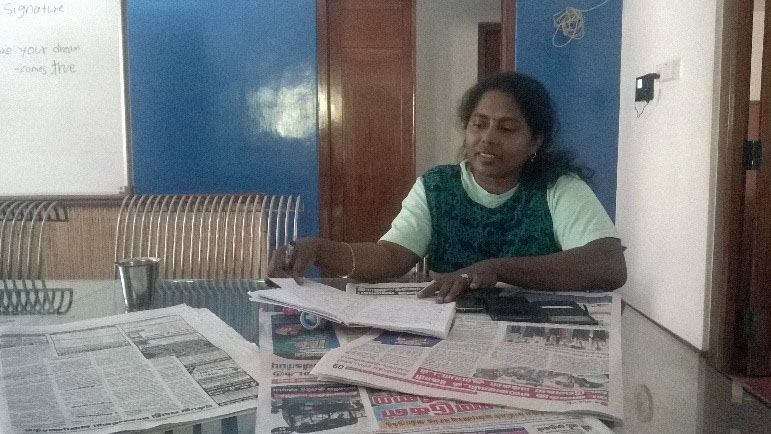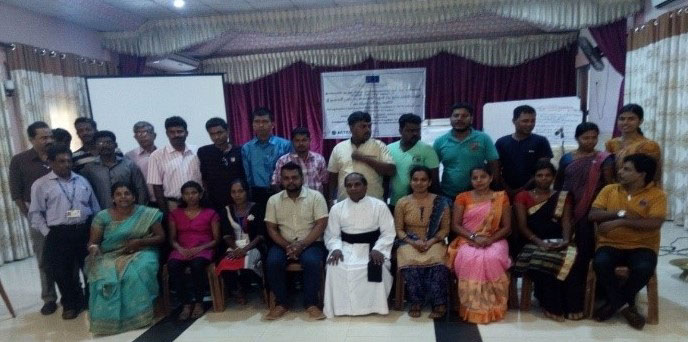A newspaper editor contributes to more ethical media reporting in Northern Sri Lanka
With the support of the European Union, ACTED worked in partnership with SOND and the Bar Association of Sri Lanka to implement a project aiming at strengthening fundamental rights and freedoms in the Northern and Eastern provinces of Sri Lanka. As part of the project, 469 journalists were trained on ethical reporting, freedom of expression, and media rights.

Priya is a journalist from Jaffna who works as a sub-editor in a Tamil national newspaper. She heard about the project and the training programme for journalists from one of her colleagues who had attended a two-day training on ethical reporting in Jaffna district. As a sub-editor of a national newspaper which publishes on a daily basis, Priya has a very busy schedule, and she has very little free time to attend trainings, especially for two full days. However, she was very motivated to attend the trainings offered by the project, as she was convinced that she could learn a lot from them and that they could help her develop knowledge that would be valuable for advancing her career.
Ethical reporting is one of the most important principles of journalism. I am the one responsible for editing the final news articles, content and the headings in a paper that will be read all over the country, so it is crucial that I understand the requirements in terms of media ethics. Through the ethical reporting training, I was able to gain a lot of knowledge that I am now applying in my day to day work as editor.
Being a news editor often means correcting journalists who might want to gain a reputation and increase their visibility by using attractive headlines that do not reflect the real situation and by publishing shocking or offensive photos. Therefore, when she heard of the ethical reporting training, she decided to encourage her reporter colleagues to also attend the training.

After they attended the ethical reporting training, Priya found things to be quite different at the office. She explains: “Before the training, I faced a lot of arguments and criticism from my colleagues when editing their articles owing to their lack of ethics. They used to oppose and criticise my editing decisions owing to their lack of understanding of media ethics in reporting. After attending the training, my colleagues now understand the importance of ethical reporting, and I feel I can work with them much more easily”.
“Many journalists from the Northern and Eastern provinces do not have any professional qualifications such as a degree or diploma in journalism or in any related field, as education opportunities during the civil war were scarce. Therefore, short training programs are very useful for these journalists to improve their knowledge and capacities in journalism,” explained Priya.
For many of them, it was the first time they ever received such kind of training.
Priya is also a visiting lecturer in mass communication and journalism at the Sri Lanka Media Institute. She says: “I am now using what I have learnt from the ethical reporting training when teaching to my students from the institute, as they will be the future journalists of Sri Lanka. As I also guide and mentor other journalists in Jaffna district, I share my knowledge of ethical reporting with them.”
To read the original photo report, you can click here.
This project has been made possible thanks to the support of European Commission.

We would also like to thank our partners who contributed to the implementation of the project:

